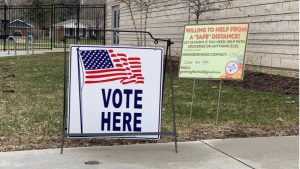The National Governors Association (NGA) and Western Governors University (WGU) are partnering to address the future of work and education, as well as develop best practices in state policy that will result in greater access to higher education.
West Virginia Governor Jim Justice unveiled his $1 billion broadband strategy to connect 200,000 West Virginia homes and businesses.
Federal and state CIOs shared pandemic lessons and their thinking about return-to-office strategies during an October 19 panel discussion at the Dell Technologies Forum online event.
The State of Maine joined the Electronic Registration Information Center (ERIC), a non-profit consortium of 31 other states, to improve voter rolls’ integrity and promote voter confidence in the electoral process.
Teddra Burgess, senior vice president Public Sector at cybersecurity technology provider Tanium, is still relatively new to the company, but hardly so to the Federal marketplace. Throughout her career, she has held numerous leadership roles at high-profile organizations like ASG Technologies, Micro Focus Government Solutions, and Hewlett Packard Enterprise, to name a few.
The University of California (UC) Presidential Working Group on Artificial Intelligence (AI) recently released the Responsible Artificial Intelligence report sheds light on how the institution currently uses AI and includes recommendations on incorporating eight guiding ethical principles for UC’s use of AI in its services.
The Federal Communications Commission (FCC) has authorized $554 million for broadband deployment through the Rural Digital Opportunity Fund.
The Cybersecurity and Infrastructure Security Agency (CISA) announced that it has awarded $2 million to bring cybersecurity training programs to rural communities and diverse populations.
Data experts Eileen Vidrine, chief data officer (CDO) at the U.S. Air Force, and Jeremy Wilson, multi-factor authentication statewide program manager for the State of Texas, gathered on Oct. 19 at the Dell Technologies North America Forum to share their insights on data protection measures and the importance of keeping data secure.
Two colleges are taking a seemingly unconventional approach to improve campus cybersecurity and are working to eliminate passwords.













